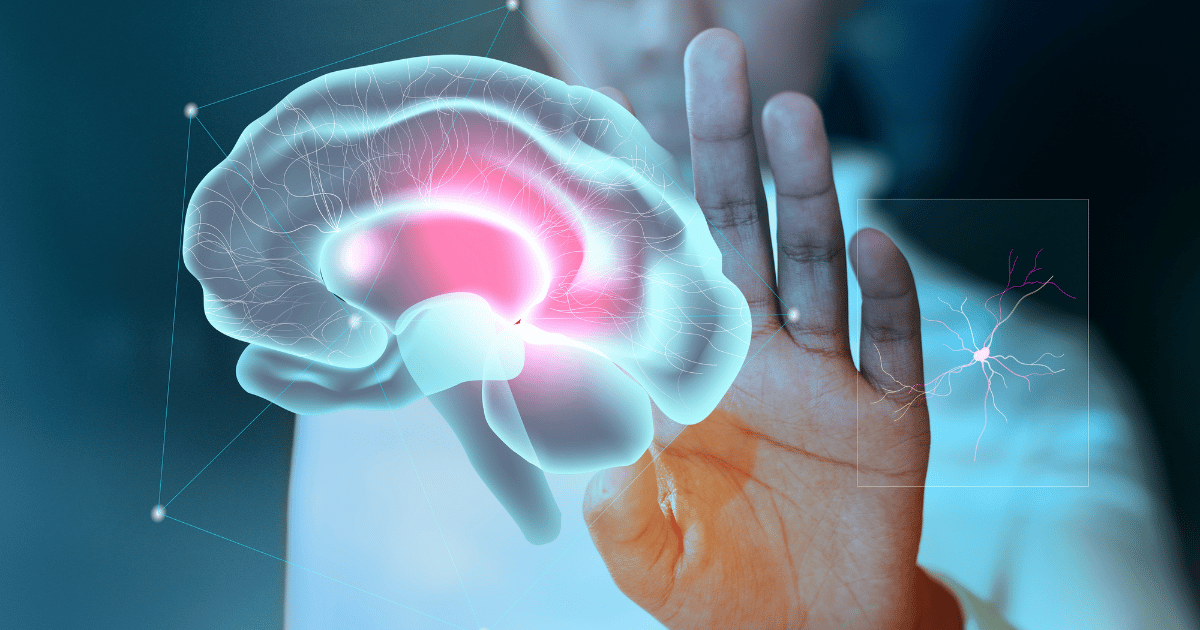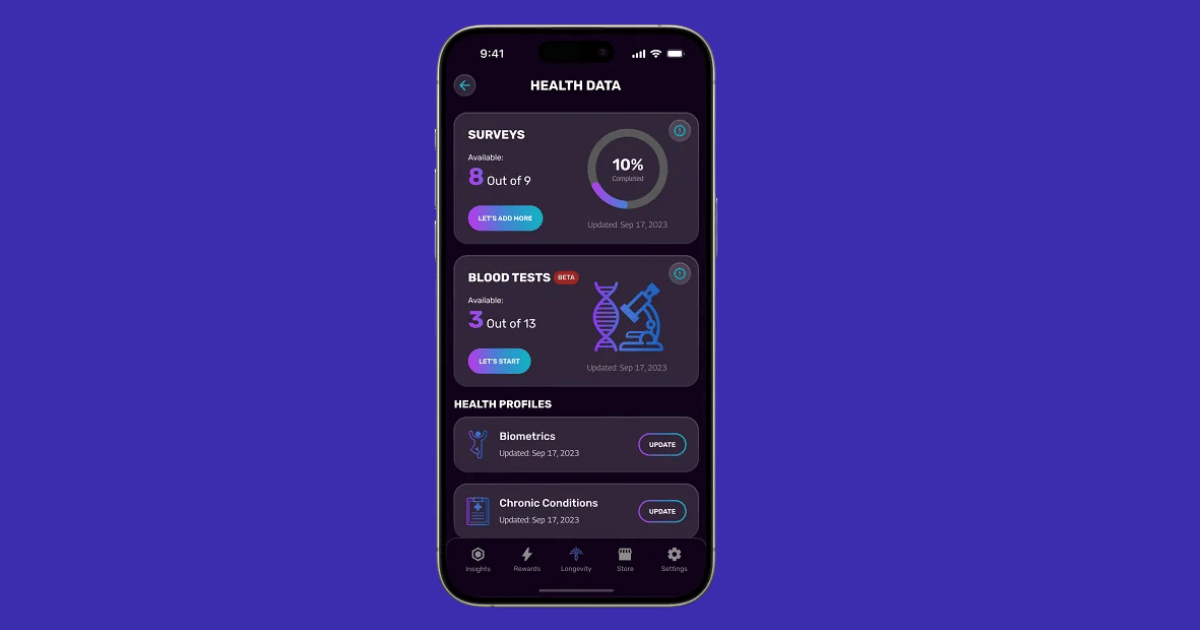
Your weekly longevity insights are here.
Your immune system has a new age tracker — and it’s way better than that birthday cake.
Turns out some vaccines are like Benjamin Button for your T cells.
Don’t keep longer. a secret—share it with your friends!
This week in longevity:
🧠 Boosting brain cleanup restores memory with age
🧬 Gene networks offer new anti-aging targets
🗣️ Bilingualism may slow Alzheimer’s brain loss
🧪 Non-coding RNAs linked to longer lifespans
📱 Longevity app pays users in crypto for health data
Plus, more longevity breakthroughs.
Read time: 5 minutes
THIS WEEK IN LONGEVITY
FEATURED
🧬 New Clock Tracks Immune System Aging

Source: Freepik
Scientists in Germany just built an AI tool that measures how fast your immune system is aging. It’s called the Single-Cell Immune Aging Clock, and it tracks how different immune cells change over time. The tool shows that infections like COVID can speed up immune aging—while some vaccines may actually reverse it.
What to know:
AI meets immune health: Researchers used data from over 2 million immune cells across 1,000 people (ages 18 to 97) to train a model that tracks how immune cells age.
Each cell tells a story: The clock breaks aging down by immune cell type—like monocytes or CD8 T cells—so scientists can see which ones are aging faster and why.
COVID’s impact: In serious COVID-19 cases, one key cell type (monocytes) aged faster—but this effect reversed after about three weeks of recovery.
Vaccine rejuvenation: A tuberculosis vaccine appeared to rejuvenate CD8 T cells in people with higher inflammation, hinting that some vaccines might help turn back immune aging.
Open for research: The tool is free to use, opening doors for new anti-aging therapies, personalized immune health strategies, and better vaccine development.
Why it’s important: This gives scientists a powerful way to see how your immune system changes as you age—and even how to slow it down. It’s a big step toward personalized medicine that keeps your body’s defenses strong for longer.
FEATURED
🧠 Boosting brain cleanup restores memory with age

Source: Freepik
Scientists discovered that improving the brain’s natural waste removal system can dramatically improve memory as it ages. By strengthening a network of vessels just outside the brain—called meningeal lymphatics—researchers helped restore memory and reduce inflammation in aging brains. The results, first tested in older mice, open the door to new ways of protecting brain health as we get older.
What to know:
Brain’s cleanup crew: Meningeal lymphatics are vessels that remove waste from the brain and support overall brain health.
Targeted protein therapy: Researchers used a special protein treatment to grow and strengthen these vessels, improving their ability to clear toxic buildup.
Calming brain stress: The treatment lowered levels of interleukin 6, a distress signal from overworked immune cells, helping reduce inflammation and damage.
Easy access: These vessels are located outside the brain, meaning they can be targeted without needing to cross the blood-brain barrier.
Future possibilities: This research could lead to therapies that slow or prevent memory loss, offering a new path for tackling age-related brain decline.
Why it’s important: As we age, waste builds up in the brain like clutter in a hallway—blocking signals and slowing everything down. This study shows that keeping the brain’s “cleaning system” in shape might help protect memory and slow cognitive decline.
💡Pro Tip: Want to dive deeper? Use tools like ChatGPT, Claude, or Grok to simplify complex studies. Copy, paste, and get a clear summary—it’s like having a personal research assistant.
IN THE SPOTLIGHT

Source: Freepik
1. Cracking Gene Networks Could Unlock New Ways to Slow Aging
Scientists are shifting from studying single genes to exploring how entire gene networks drive aging, aiming to design smarter longevity strategies. These networks—complex webs of gene interactions—shape how cells respond to stress, repair damage, and maintain balance. By understanding key patterns in these systems, researchers hope to engineer targeted interventions that promote healthier, longer lives.
2. Speaking Two Languages May Help Protect the Aging Brain
New research from Concordia University shows bilingual people with Alzheimer’s keep more volume in their hippocampus—a key memory center—than monolinguals. This suggests bilingualism may help preserve brain structure as the disease advances. Even late learners with modest skills saw this benefit, pointing to a simple way to boost brain resilience.
3. Hidden Genetic Players May Hold the Key to Longer Lifespans
New research suggests that non-coding RNAs—genetic material that doesn’t make proteins—might play a major role in determining how long different species live. Unlike protein-coding genes, these overlooked molecules seem to evolve alongside lifespan and reproductive traits. As scientists dig deeper into this hidden layer of biology, they’re uncovering powerful clues about what really drives longevity across species.
LONGEVITY LAB
THE NEXT BIG THING
The First Longevity App That Pays You Back

Source: RejuveAI
A new platform just launched—not for tracking steps, but for extending your healthspan.
Rejuve Longevity is a new app that blends AI, user health data, and blockchain to deliver personalized longevity insights—and rewards you in crypto for participating. It calculates biological age using over 370 biomarkers and provides science-backed suggestions based on lifestyle, medical, and genetic inputs.
Built by top researchers in AI and aging, Rejuve puts users in control of both their health—and their data.
LONGEVITY SNAPSHOTS
WHAT ELSE YOU SHOULD KNOW THIS WEEK

Source: BlueCruise
🧬 Fat Power: New research spotlights C15:0, a newly recognized essential fatty acid, as key to slowing aging and boosting cellular resilience. Fatty15, its optimized form, outperforms metformin and rapamycin in early studies.
💊 Heart Shield: A major new trial shows oral semaglutide significantly cuts heart attack and stroke risk in people with type 2 diabetes. This pill form offers a powerful, easier alternative to injections in preventing deadly cardiovascular events.
🛳️ Longevity Voyage: BlueCruise, an 18-month global expedition, tests real-life longevity habits while visiting all five original blue zones. Onboard diagnostics and tailored regimens aim to separate science from myth in living longer.
🧠 Biohack Boost: A new guide breaks down five proven biohacks—like cold exposure, fasting, and sleep syncing—to slow aging and boost health. Early studies show 42% better metabolism, sharper focus, and reduced disease risk.
💇♀️ Hair Reboot: Longevity skincare brand Oneskin just launched its first haircare product: the OS-01 Hair Peptide Scalp Serum. In a six-month trial, users saw hair width jump 42% and hair count rise 40%, rivaling leading treatments like minoxidil.
WHAT WE’RE BOOKMARKING
📱 Social
🎧 Podcasts
📰 Articles
⚙️ Tools to Try
Thanks for reading.
What did you think of this week’s newsletter?
See you in the next issue.





